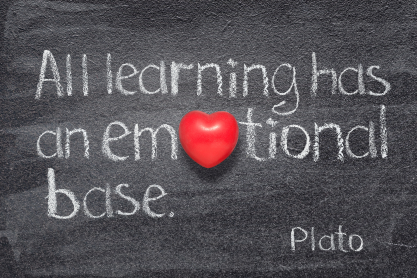
Why Social-Emotional Learning is the Secret Weapon in Raising Thriving Kids
As parents, we pour our hearts into our children’s education, ensuring they master their multiplication tables and ace their spelling tests. But what about the skills that underpin all that learning? The ability to manage emotions, navigate social situations, and build healthy relationships? Enter Social-Emotional Learning (SEL), the often-overlooked superpower in preparing our kids for life’s journey.
Think of SEL as the emotional intelligence gym for their growing minds. It equips them with tools to:
- Understand and manage their feelings: From recognizing frustration to calming down after a meltdown, SEL empowers children to navigate the rollercoaster of emotions without getting derailed.
- Develop empathy and build positive relationships: Learning to see things from another’s perspective and communicate effectively fosters strong friendships and reduces conflict.
- Make responsible decisions: From resisting peer pressure to choosing kindness, SEL equips children with the critical thinking skills to navigate tricky situations confidently.
- Bounce back from challenges: Dealing with disappointment and setbacks is inevitable. SEL teaches children resilience, helping them cope with difficulties and keep moving forward.
But why is SEL so crucial? The benefits go far beyond good grades. Studies show that strong social-emotional skills lead to:
- Improved academic performance: Children who can focus, manage stress, and collaborate effectively learn more effectively.
- Reduced mental health issues: SEL helps children cope with anxiety, depression, and bullying, promoting emotional well-being.
- Greater success in life: From strong work ethic to healthy relationships, SEL skills pave the way for a fulfilling future.
So, how can we bring SEL into our homes? The good news is, it’s easier than you think! Here are some simple tips:
- Label emotions: Help your child identify and name their feelings. Use picture charts or stories to explain emotions in relatable ways.
- Role-play social situations: Practice taking turns, sharing, and resolving conflicts through playful scenarios.
- Read books about emotions: Explore age-appropriate stories that help children understand and manage their feelings.
- Model empathy and kindness: Show your child how to see things from another’s perspective and be considerate of others’ feelings.
- Create a safe space for communication: Encourage open and honest conversations about emotions and challenges.
Remember, SEL is a journey, not a destination. By incorporating these practices into your daily routine, you’re nurturing the social and emotional muscles your child needs to thrive in this complex world. And that, my fellow parents, is a gift that keeps on giving, long after they’ve mastered their ABCs and 123s.
Let’s champion SEL and raise a generation of emotionally intelligent, resilient, and compassionate individuals. Together, we can unlock their true potential, one feeling, one interaction, one decision at a time.